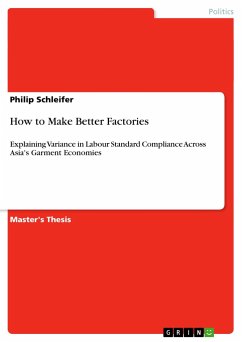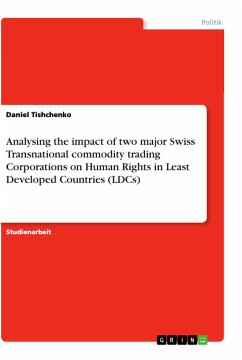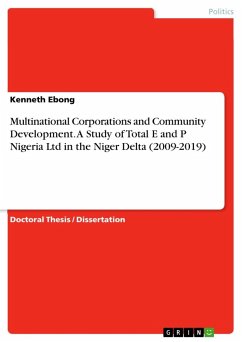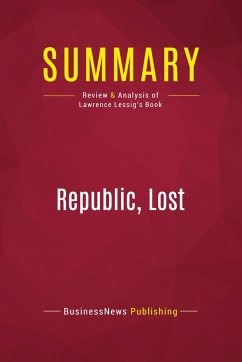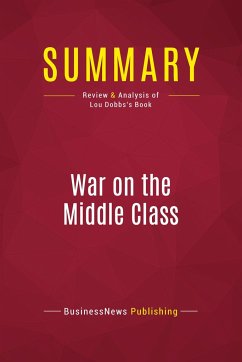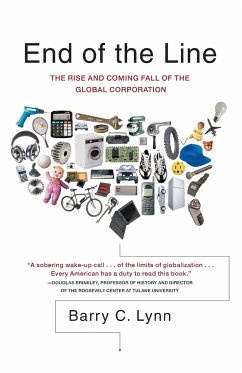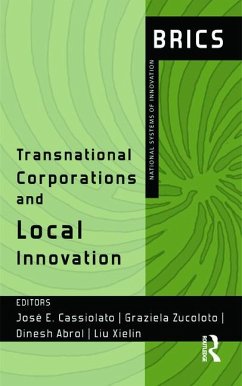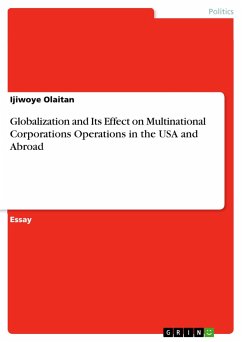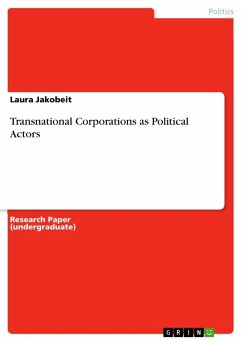
Transnational Corporations as Political Actors

PAYBACK Punkte
0 °P sammeln!
Research Paper (undergraduate) from the year 2010 in the subject Politics - Topic: International Organisations, grade: 1, -, language: English, abstract: "We live in a world where markets are not less important than countries and where multinational companies are not less important than governments" - this claim by Shimon Peres (cited in Rosenau, 1998, p.28) shows two essential developments in the area of international relations: nation states´ power has suffered a decrease, while transnational corporations (TNCs) have become more powerful political actors (Hildebrandt, 2003). Some of the TNC...
Research Paper (undergraduate) from the year 2010 in the subject Politics - Topic: International Organisations, grade: 1, -, language: English, abstract: "We live in a world where markets are not less important than countries and where multinational companies are not less important than governments" - this claim by Shimon Peres (cited in Rosenau, 1998, p.28) shows two essential developments in the area of international relations: nation states´ power has suffered a decrease, while transnational corporations (TNCs) have become more powerful political actors (Hildebrandt, 2003). Some of the TNCs have annual sales that are higher than the GDP of countries: 21 companies were among the 100 largest economies in 2000 if salaries and benefits, depreciation, amortization, and revenues summed (Sarfati, 2009).The central question then is how much power TNCs nowadays have and what their actual role and influence in the area of international relations is. Do TNCs dictate the conditions under which they operate? Or are states still the unchallenged main actor of international relations? And how do TNCs, states, and nongovernmental organizations (NGOs) work together?In this environment of economic globalization, global rules for global markets are essential. The question is how these should be implemented, and who should do so. Taking into account the mentioned declining regulatory capacity of nation states it becomes obvious that there have to be other institutions fulfilling the demand for international rules, in order to achieve a balance between market and social concerns (Brown, 2010). Taking these developments into consideration, this paper will discuss the research question, in how far TNCs are able to fill existing institutional voids, and what their motives are. Do they initiate actions because they are willing to do so, or are they forced to? The hypothesis is that TNCs are able to cope with existing institutional voids by using codes of conduct, which emerge as informal institutions that set international rules. In order to analyze this problem the paper will take the United Nations Global Compact (GC) as an example of one specific code of conduct that has been set up to create global rules.




